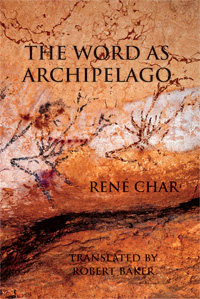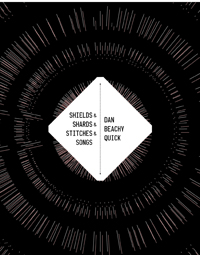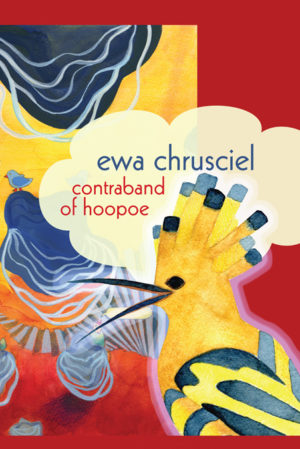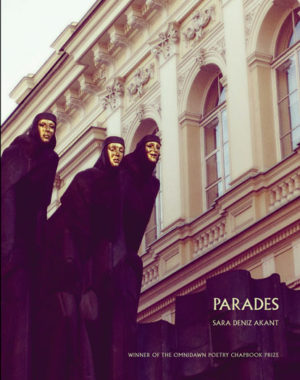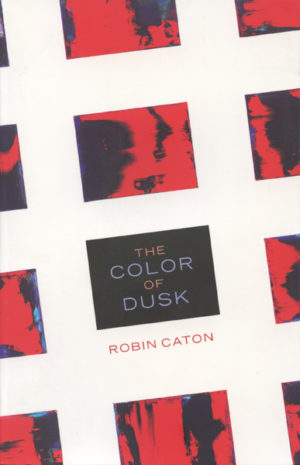Description
translated by Robert Baker
French on facing pages
The Word as Archipelago is the first complete translation into English of La Parole en archipel, an important book that René Char published in 1962, and a book whose title is an apt figure for the whole body of poetry that Char wrote over a period of fifty years. The author of this book is a lover, a visionary of the natural world, an elegist, a phenomenologist of encounter, a mystic of the night, a spirit of defiant freedom who in the Second World War had been a leader in the French Resistance.
The book includes work in the different forms Char fluently moves among—the verse poem, the prose poem, and the aphoristic sequence—and displays his characteristic stylistic gifts: vivid concreteness, speculative incisiveness, archipelago-like scope. The word is an island belonging to a unity always partially hidden. Robert Baker’s resonant translation brings into English this language of intuitive crossings. A poet of pessimism and hope at once, perhaps the greatest French practitioner of the prose poem since Rimbaud, Char writes a beautifully open poetry of his avventura amorosa with life itself.
René Char’s poetry reveals poetry itself. Not as some ultimate achievement, some apotheosis of harmony and unity. Rather, as sheer disjunction, “the word as archipelago.” At odds with itself (a fight between gravity and restlessness), Char’s language heads for a precipitous opening onto the future. Robert Baker’s rigorous and spirited translation has caught this joyous anxiety. “How to live without an unknown before us?” “What’s reality without the dislocating energy of poetry?” This translation, along with Baker’s very useful introduction, bibliography and notes, is a stroke of good fortune for Anglophone poetry readers.
Ann Smock, translator of Maurice Blanchot’s The Writing of the Disaster
Robert Baker’s versions of Rene Char are themselves a cosmos, pure and simple, an absolute terrain. Not since Clayton Eshleman’s landmark volume of Vallejo’s Complete Posthumous Poetry has a single translator brought both a splendid poetic gift and a first-rate scholar’s mind to bear upon so signal a work of 20th-century poetry. Every day, it becomes more and more clear that Char’s is a prophetic, urgent vision. Robert Baker forwards that vision with bright ardor and flawless clarity.
Donald Revell, translator of Arthur Rimbaud’s A Season in Hell
In this gripping mix of poetry and prose, impersonal yet intimate, René Char writes “Pluto in the sky! // The explosion in us.” Char, a Resistance leader in World War II, from his community of poets, painters and philosophers, envisions creative work as a form of resistance. The brilliant, expansive text of The Word as Archipelago develops as a chain of word-islands in the open sea. The open sea becomes a completion of the text by the reader, and the translator who lucidly measures what the poet sees.
Norma Cole, translator of Jean Davie’s A Woman With Several Lives
About the Author
Reviews
Excerpt
René Char is one of the great French poets of the last century. He was born in L’Isle-sur-la-Sorgue, in 1907, and lived almost all his life in either Paris or Provence. As a young writer, he participated in the surrealist movement, but in 1935 he broke with the movement and began to find his own path. He fought in the Second World War and in its darkest years became a leader in the Resistance. His many books of poetry, including a wartime notebook published in 1946, Leaves of Hypnos, earned him recognition as one of the major existential writers of his time, a poet of passion and independence, presence of mind and speculative scope. He died in 1988.
Robert Baker studied at the University of Wisconsin in Madison, the Universidad Complutense de Madrid, and Cornell University, where he received a PhD in Comparative Literature. The author of two books, The Extravagant: Crossings of Modern Poetry and Modern Philosophy and In Dark Again in Wonder: The Poetry of René Char and George Oppen, he is professor of English at the University of Montana.
A brief interview with Robert Baker, translator
(conducted by Rusty Morrison)
What prompted you to think about translating Char?
I’ve often translated poems by poets I was reading in depth or writing about. There are different ways of trying to find your way inside a poem. One way is to learn a poem by heart: then you can carry it around with you, recite it at different hours and in different seasons, as though you were turning it around in the light to look at it from different angles. You learn the poem with your whole being then. Another way to find your way through a poem from the inside, if it’s a poem in a foreign language, is to translate it. This helps you to see things you may not have seen before. I translated a few of Char’s poems years ago, when I was writing my first book, a book on poetry and philosophy. The introduction to that book includes a translation of Char’s “Seuil” (Threshold). I began to translate The Word as Archipelago during a solitary summer a few years ago. At first I thought I was simply translating a single poem, and then another, and then another. I was not thinking about translating the entire book. But I found I was deeply drawn into this space. I kept going there, for hours and hours a day, translating poem after poem, and I didn’t really come back until the end of the summer. By then I had translated a good many poems, including a draft of the whole of The Word as Archipelago. The long work of revision would come later.
Which poem did you translate first? Why?
The first poem I translated in this book was “Outcome.” It’s a short poem and it’s not really typical of Char’s work. It’s a poem of despair, or a poem that begins in despair, dwells there a moment, and then barely reaches toward another horizon. For Char, I think, despair, or a condition of pointlessness, is the given of our condition, or the limit of our condition, but a given against which all his poetry moves. It’s not a place he tends to write about directly. There are of course exceptions to this. In any case I think of “Outcome” as a somewhat eccentric poem with respect to his work as a whole. That it was the first poem I translated in this book probably says something about my spirits at the moment I began the journey. The second poem I translated, I remember, was “We Have,” one of Char’s aphoristic sequences, a poem with fire and spirit and great reach, a poem I think could well be taken to represent what Char’s poetry is all about. The poem begins with a phrase that, with a slight alteration, would become the title of this book: notre parole en archipel (our word as archipelago).
What were the most challenging moments in the process?
There was of course the challenge felt by any writer, or any translator, when you intuit a thing that has to be said, and you know that all the ways you’ve tried so far have failed, and you wonder if the words you need will ever come. My response to this was to walk back and forth in a place outdoors, saying words and sentences to the air, wearing a path in the grass, first in a yard behind the house where I was living when I began the book, then in a yard beside the house of a friend who let me stay at her place in the mountains when I was revising the book a last time. What is a path in the grass a figure of? The other challenge came when I sent my first draft to readers for their responses and was shown that a number of poems had flaws. That was of course a bracing and helpful challenge. This sort of attention is any translator’s luck. Patience, a readiness to go back where I had already been, was important. The truth, Emerson says, comes in a moment, unannounced, but only because we had previously laid siege to the shrine. I found this to be entirely true in the space of translation.
How has this process changed your thinking about translation?
Three things come to mind. The first may sound a touch absurd, I guess, but in truth I have a considerably greater appreciation for the sheer difficulty of it. Of course, everyone knows that translation is difficult, that you can never really translate a great poem, that the roots and peripheries of words can never be brought across the gap between languages (“a poem reaches to the very peripheries of our intelligence,” Williams says), that poetry is what gets lost in translation. Everyone knows all this. But I still don’t think I imagined just how difficult it would be. I despaired of the work more than once. The second thing I learned was what a joy it could be. There are moments when the words arrive, when something comes clear. Despair, joy, despair, joy, over and over, a rhythm we know in all regions of life. The third thing I found is harder to say. It would be a theory of translation if I could bring it to that level of clarity. But I can’t. It’s a sense that in translating a poem, you are translating the words, but you are not translating the words because you are translating the experience that the words disclose, but you are not translating the experience that the words disclose because you are translating the words. To translate a poem is to move through the whole circle or circumference of these dimensions. You have to be true to the whole of it. As I say, this is only an intuition, not a clearly unfolded line of thought.
Who are the poets with whom you feel a kinship? Who are you reading currently?
I’m drawn to poets who, like Char, have a romantic sense of what poetry can mean for us, a romantic sense of the depths and horizons that can be found in poetry, and a modernist sense of the demands we have to put on our language if anything like this is to be kept alive in our time. But perhaps the word “modernist” in this last sentence is itself fussy, or tired, or clunky as a stereotype is clunky. Serious writers put demands on their language, whatever their bearings are, and the idea of modernism, or the idea of romanticism, readily becomes a box as dull as any other box. The ideology of individualism is discredited in contemporary literary culture (not, alas, in American culture at large), and for very good reasons, but a genuinely independent spirit is still a joy to encounter, and it’s no good pretending otherwise. Reading C. D. Wright, whose work sounds depths of sorrow and depths of rapture, always brings me elation, in part because she sees so far and writes with such clearing force, but in part because she finds her own path. “There are words that mean nothing / But there is something to mean,” Oppen says.
You selected the cover image. Can you speak to that?
The cover image is a picture of the “swimming stags” or “swimming deer” in the cave of Lascaux, the famous cave in the south of France discovered in 1940, a cave with multiple chambers. The walls of the cave are covered with stunning prehistoric paintings, almost entirely of animals, of deer, bison, horses. The paintings are thought to be 16,000 years old. Scholars sometimes refer to the painting on the cover as the “swimming deer” owing to the way the deer seem to be swimming with a river, or crossing a river, as they move across the wall. And yet, seen another way, they seem to be gliding out of a dark rift in the wall, emerging from this rift, as though this were the very place of their coming to appearance, the very place of their coming into the field of vision of whoever painted them there, perhaps a shaman. In The Word as Archipelago there is a sequence of four poems, “Lascaux,” the second of which is titled “The Black Stags.” The poem may well be based on this painting. Char knew the art of Lascaux well. He had read studies of it. The visionary quality of the Lascaux paintings, the way they are at once of great clarity and great suggestive power, the depth of time out of which they come to us, the riddle of whether they belonged to a hunting ritual or to a shamanic religious practice: all these matters would have spoken deeply to Char, who was a naturalist visionary, a visionary of natural presence. Char would have felt an affinity with this art and a connection with its presence not far from where he grew up and lived much of his life. The beauty of the image on the cover has to do with the way the deer are held to the hidden depth of rock and at the same time are as light as an apparition. I like to think of this as an image of Char’s poetry, a talisman for Char’s poetry.
Robert Baker is a deft and sophisticated reader who has long trained his sights on Char’s poetry. A scholar of comparative literature, Baker has written a critical study of Char and the American poet George Oppen. This fortuitous preparation makes him especially well poised to bring Char into English, for not only has Baker been “tamed” into being an inspired reader of Char, he has also taken into consideration promising American poetic models that could be used to render Char’s poetry into English. Oppen is an unexpected but terrific source of comparison. (W. S. Merwin strikes me as another.) That said, Baker’s translations do not sound like Oppen; they quite powerfully sound, at least to this reader, like Char “tamed” into English. And by “tamed,” I do not mean “subdued” or “weakened”; I mean something wild and unhave-able (which is what a poem in a foreign language always is) that has been caught or quieted long enough for us to have a meaningful encounter with it.
The poems feel, if anything, overwhelmingly cared for — a trove of furious love poems intensely loved. While translating, Baker would dissolve into the work. “I just needed to be totally in that space,” he says, “just humming Char poems in my head, humming the lines, to get in that space that’s humming.” His translation of The Word As Archipelago hums with fury and mystery. It’s one, I think, that should satisfy even the most notoriously unyielding of critics, Char himself.
FOUR THAT FASCINATE
I
THE BULL
It’s never night when you die,
Surrounded by the dark that cries,
Sun with two parallel points.
Love’s wildness, truth in the sword,
Incomparable couple that rends itself.
II
THE TROUT
Shores that collapse brilliantly
In order to fill the entire mirror,
River stones where the boat stammers
That the current hurries and rolls,
Grass, grass always unfolded,
Grass, grass never at rest,
What is it your creature becomes
In the transparent storms
Its heart hurled it into?
III
THE SERPENT
Prince of mistakes, give practice to my love
In slipping past her Lord, the one I hate
For having but dull repression, luxurious hope.
Revenge of your colors, genial serpent,
Under cover of the woods and in every house.
Through the tie that links the light to fear,
You pretend to flee, O serpent of the margins!
IV
THE LARK
Pure ember of the sky and first ardor of the day,
She is set in the dawn like a jewel and sings the shaken earth,
Soaring chime who’s master of her breath and free in her route.
Ah she fascinates: one pierces her by astonishing her.

